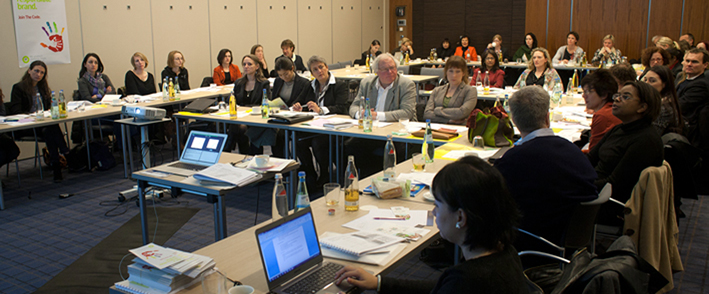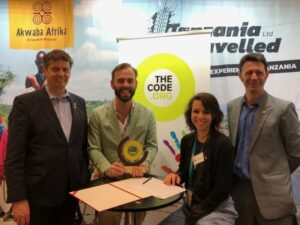Tuesday, 5 March 2013; 14:00 – 18:00
Novotel am Tiergarten, Straße des 17. Juni, 10623 Berlin
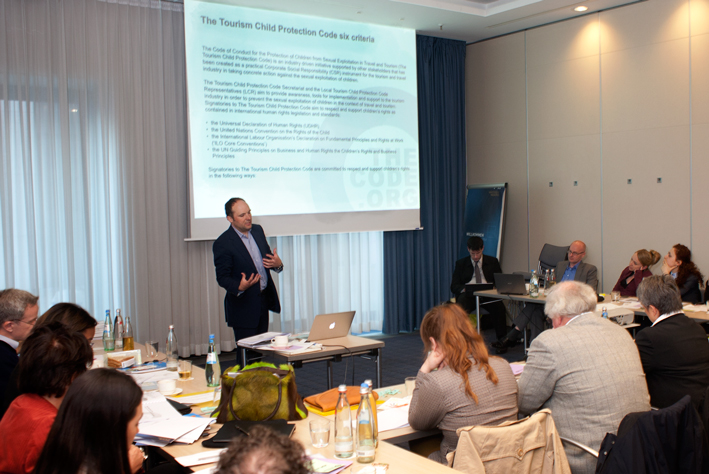
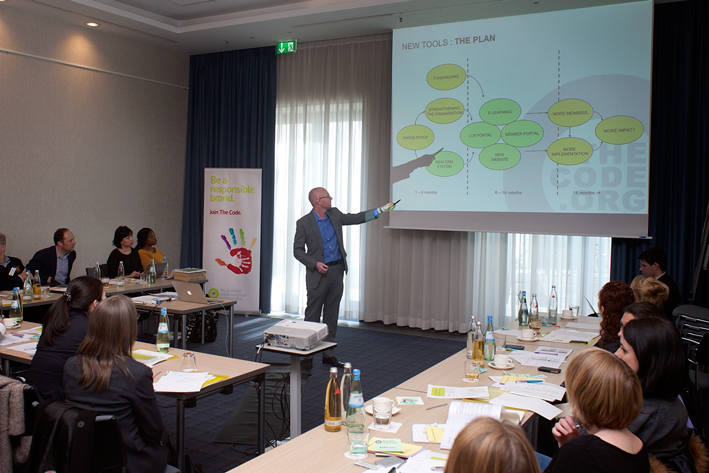
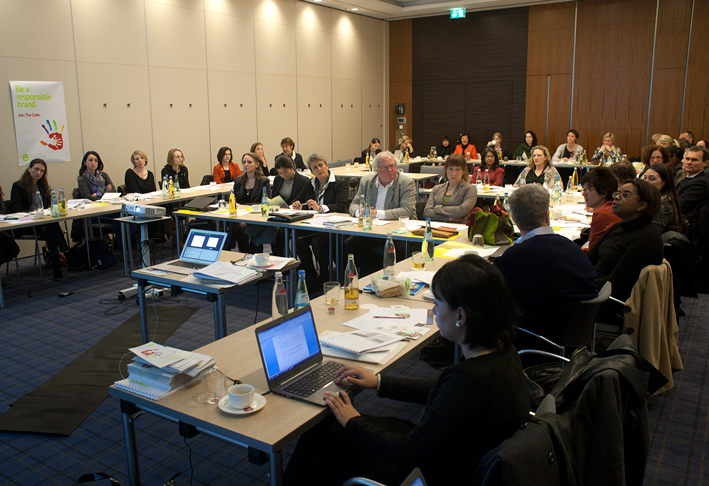
Highlights of the AGM:
I. Presentation of The Code’s Annual Reports and Accounts
The Code’s Chairman, Mr. Matthias Leisinger of Kuoni, gave a presentation of the Annual Reports and Accounts. He started with a summary of key achievements: organizational development of the new Code office in Bangkok, the work on a new Code strategy and preparations for this AGM and ITB Berlin. He also expressed thanks to SECO, GIZ , The Code team in Bangkok and to ACCOR for hosting the AGM at Novotel am Tiergarten. Last year’s highlights for The Code included a higher engagement from the tourism industry, multiple donors, the completion of the new strategy, strengthening of the Code secretariat, and the development of new tools. There was a stronger balance between the tourism industry and NGOs at this AGM.
II. Presentation of The Code’s New Tools
Mr. Andreas Astrup, General Manager of The Code, gave an overview presentation of the new tools and services developed as part of the new strategy. This included the new customer relations management, CRM system – Salesforce, the member’s portals, LCR’s portal, new e-learning modules and the new website. The new CRM system was created to eased the manual tasks that burden The Code head office and partners and it offered an easy way to share and update member’s information via LCR portals. LCR can get instant access to important information such as a company’s operations and contact information. Moreover, the member’s portal provided an easy step-by-step guide for companies to implement the six criteria. There are also 10 new short e-learning modules developed for front-line staff of the tourism industry as well as a new user-friendly website that shows greater transparency.
III. Election of The New Code Board
Participants at the AGM submitted their votes via ballots and the new board members of The Code are:
– Matthias Leisinger of Kuoni – Chairman;
– Mark Capaldi of ECPAT International – Vice Chairman;
– Brenda Schultz of Carlson Rezidor;
– Andreas Museler of DRV [German Travel Association];
– Shahinoor Visram of Sun n Sand Kenya;
– Bernhard Wegscheider of Skal International;
– Theo Noten of ECPAT Netherlands;
– Jennifer Seif of Fair Trade Tourism South Africa [FTTSA]
– Lotta Sand of Travel Education Centre
IV. Presentation of New Strategy Plan
Mr. Matthias Leisinger also presented a summary of the new strategic plan that was created after the October 2012 workshops with representatives from all stakeholders, taking into consideration all the feedback from workshops at last year’s AGM and surveys. The strategy focused on three important aspect of The Code: expansion, sustainability and implementation.
V. Revision of The Code’s Six Criteria
A special working group worked on the revision of The Code’s six criteria to ensure that it reflects the current tourism industry as well as strengthening its corporation of children rights indicators. Language of the six criteria was also cleaned to ensure less ambiguity. The revised six criteria are:
1. To establish a policy and procedures against sexual exploitation of children
2. To train employees in children’s rights, the prevention of sexual exploitation and how to report
suspected cases
3. To include a clause in contracts throughout the value chain stating a common repudiation and
zero tolerance policy of sexual exploitation of children
4. To provide information to travelers on children’s rights, the prevention of sexual exploitation of
children and how to report suspected cases
5. To support, collaborate and engage stakeholders in the prevention of sexual exploitation of
children
6. To report annually on their implementation of Code related activities
VI. Discussion on the Future of LCRs
Ms. Jennifer Seif of Fair Trade Tourism South Africa presented on the result of the working group that was tasked on addressing the various challenges of LCRs. Discussion touched upon the following: the type and structure of LCRs and the possibility of expansion to tourism associations and organisations; revision of the current LCR agreement; clarification of LCR’s roles and responsibilities; the possibility of funding for LCR’s work for The Code. Proposal for ways forward includes: possible audit of current LCRs and holding a multi-stakeholder meeting to resolves these challenges.

